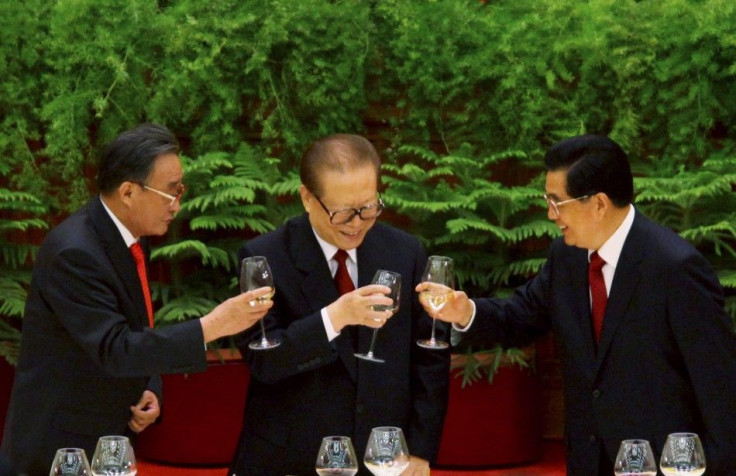Amid rumors of Jiang Zemin's death, speculation about China's new leadership

After Jiang Zemin, China's former president and party secretary, did not show up for the 90th anniversary celebrations of the Communist Party, rumors about his death circulated wildly on the Internet for the past 24 hours or so.
As Chinese netizens scurried to the web for an answer, the heavy-handed state censorship organs intervened, blocking searches related to Jiang's death, even other searches that contain the three characters that make up Jiang's name.
Boxun.com, a Chinese language website known for its sharp criticism of the Communist Party regime, issued a post confirming his death last night, but deleted it eight hours later, citing information provided by a prominent figure in Beijing that Jiang is in good condition.
Jiang has not had a high-profile public appearance since the 60th anniversary of the founding of the People's Republic of China in 2009. As the core of the third generation of Communist Party leaders, and as someone famous for his flamboyant personality, Jiang's absence from CCP's 90th anniversary is unusual.
Therefore, rumors aside, Jiang's recent disappearance and hence the concern over his health triggers speculations about the power shifts within the Communist Party as the 2012 leadership transition is drawing closer.
Although Jiang has stepped down from the upper echelons of power for more than seven years, his ability to influence Chinese politics has never subsided. Toward the end of his term, Jiang put numerous members of the princeling faction of the Communist Party, or elitists, into important positions to win their support for continuation of his clout. These positions range from members of the Politburo Standing Committee to various provincial officials.
Jiang still has some sway in Chinese politics through the officials he promoted years ago, but as he ages and his health deteriorates he will not be able to directly get involved in political affairs. In the mean time, tuanpai, populist party leaders that originated from Communist Youth League, will have greater power within the party. The undercurrent competition between the princelings and tuanpai will persist until the 18th National Congress, during which the Communist Party decides its next leadership.
© Copyright IBTimes 2024. All rights reserved.




















